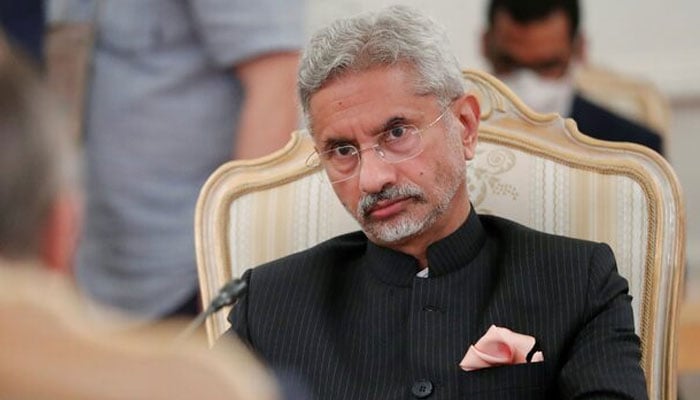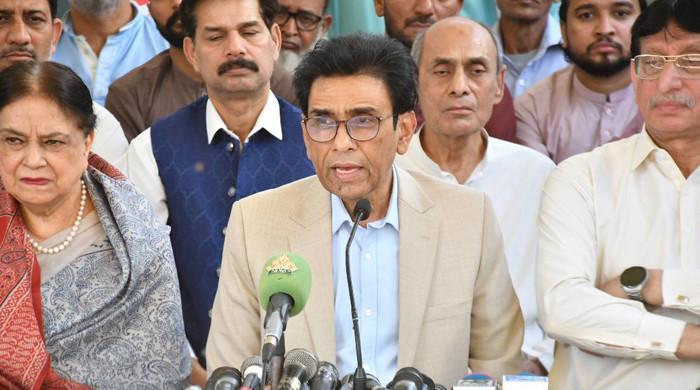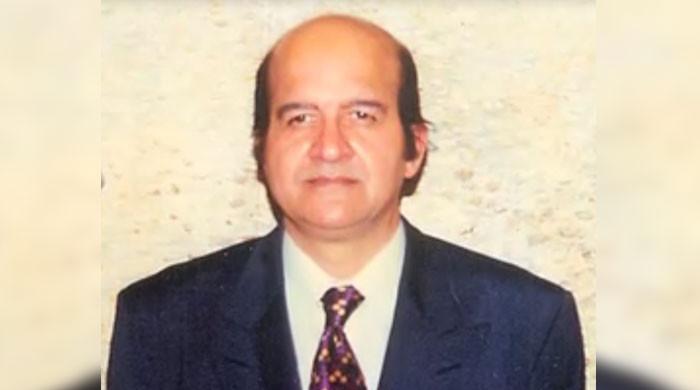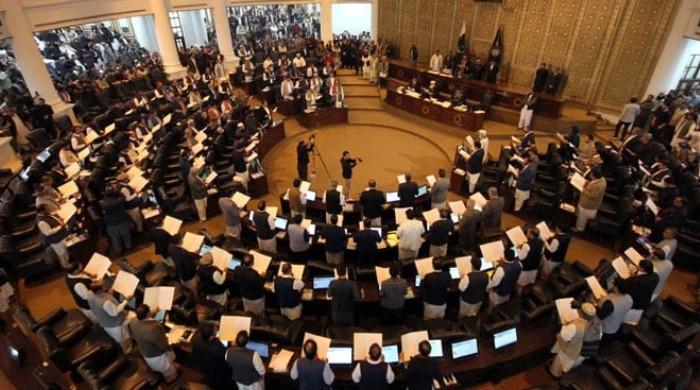Indian External Affairs Minister Jaishankar to visit Pakistan for SCO moot
Islamabad to host SCO Council of Heads of Government meeting scheduled for October 15 and 16
October 04, 2024

- Jaishankar to lead Indian delegation to Pakistan, says New Delhi.
- His visit to be first by an Indian external affairs minister in decade.
- Foolproof security plan for SCO moot in Islamabad already approved.
Minister of External Affairs of India S Jaishankar will travel to Pakistan to attend the Shanghai Cooperation Organisation's Council of Heads of Government (SCO-CHG) meeting, scheduled for October 15 and 16.
"The external affairs minister will lead our delegation to Pakistan to participate in the SCO summit which will be held in Islamabad on 15 and 16 October," said Randhir Jaiswal, a spokesperson for Indian foreign ministry, but did not say if Jaishankar would meet any Pakistani leaders on the sidelines.
This will be the first visit by an Indian foreign minister to Pakistan in nearly a decade.
Speaking to Geo News, Indian journalist Umashankar Singh, citing an Indian external ministry spokesperson, affirmed that Jaishankar would attend the SCO summit in the federal capital of Pakistan.
However, according to Singh, Indian foreign ministry official in his statement also emphaised that Jaishankar’s upcoming visit should be seen in the context of regional summit.
Islamabad extended invitations to all the government heads of the member states, including Indian Prime Minister Narendra Modi, for the upcoming SCO-CHG meeting in Islamabad, Foreign Office Spokesperson Mumtaz Zahra Baloch confirmed in a statement in July.
Pakistan currently holds the rotating Chairmanship of the SCO-CHG, which is the regional organisation's second-highest decision-making forum.
“Islamabad has also received some confirmations for the moot to be hosted by Pakistan on October 15-16,” Baloch said addressing a news briefing.
Last year in May, the then-foreign minister, Bilawal Bhutto-Zardari visited India to attend the two-day meeting of the SCO Council of Foreign Ministers.
It was the first visit to India by a top Pakistani official since then-prime minister Nawaz Sharif attended Indian Prime Minister Narendra Modi's swearing-in in 2014.
Pakistan downgraded its ties with India after the Modi-led government unilaterally changed the special status of the Indian Illegally Occupied Jammu and Kashmir (IIOJK) in August 2019 — the decision that Islamabad believed undermined the environment for holding talks between the neighbours.
Islamabad has linked its decision to normalising ties with New Delhi with the restoration of the special status of the IIOJK.
Despite the frosty ties, the two countries agreed to renew the 2003 ceasefire agreement along the Line of Control (LoC) in February 2021.
SCO summit
In July this year, Mumtaz Baloch, while giving details on the upcoming SCO event in Islamabad, said the summit would feature a ministerial huddle along with multiple meetings of senior officials to foster cooperation in finance, economics, socio-cultural affairs and humanitarian efforts among member states.
Meanwhile, the federal government approved a comprehensive plan to ensure foolproof security during the forthcoming huddle of regional leaders.
During the meeting, Interior Minister Mohsin Naqvi said that additional personnel from the Pakistan Army, Rangers, Frontier Corps (FC), and Punjab police will be deployed for security duties at the SCO moot.
The SCO, comprising India, China, Russia, Pakistan, Kazakhstan, Kyrgyzstan, Tajikistan and Uzbekistan, is a crucial multilateral platform, primarily for regional security and collaboration with Central Asian nations.
India views the SCO as an essential forum for engaging with these countries, despite its cautious approach to China’s influence within the organisation. Unlike other member states, India has consistently refused to endorse China’s Belt and Road Initiative (BRI), which has been a point of contention in SCO joint statements.











